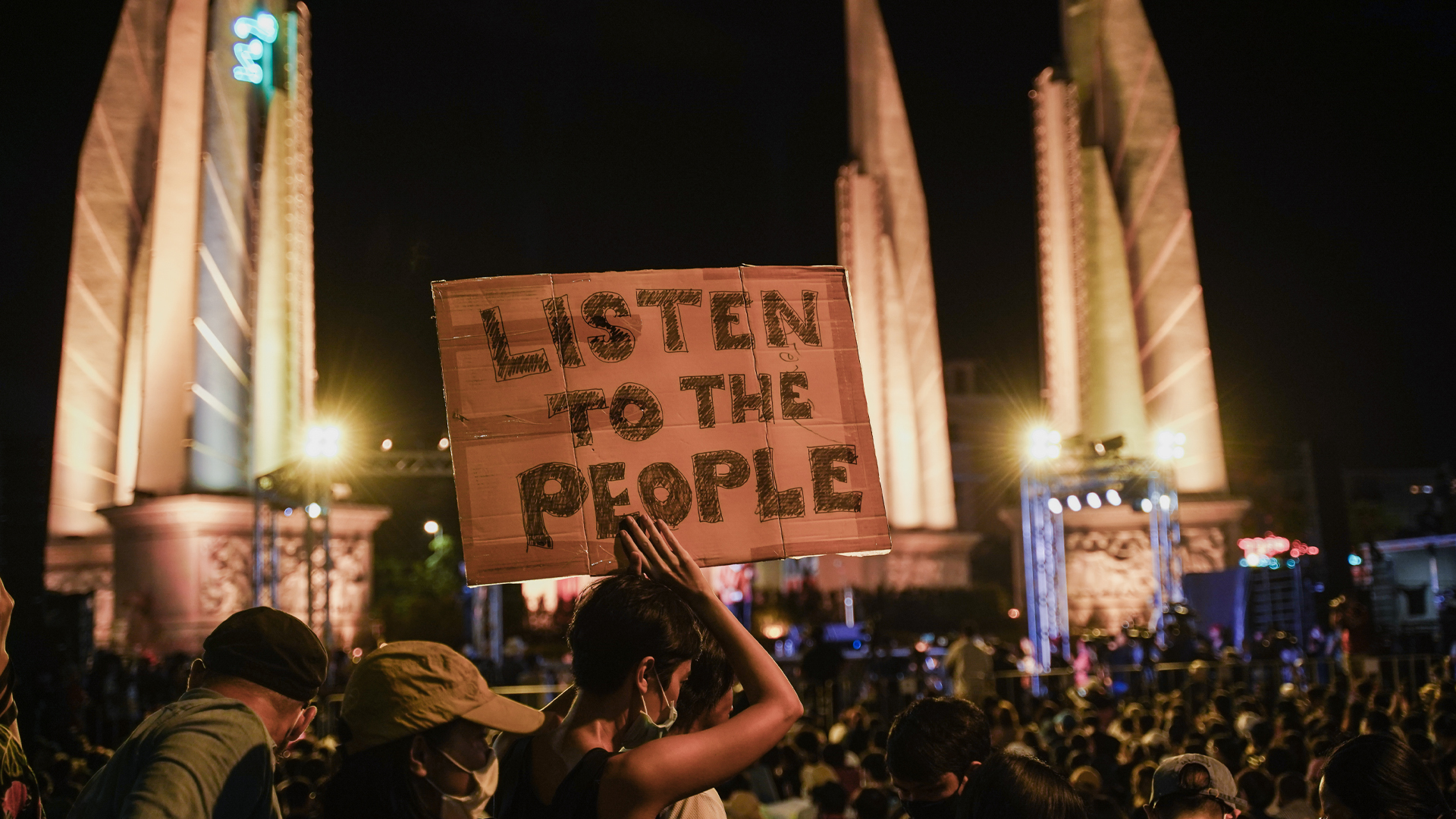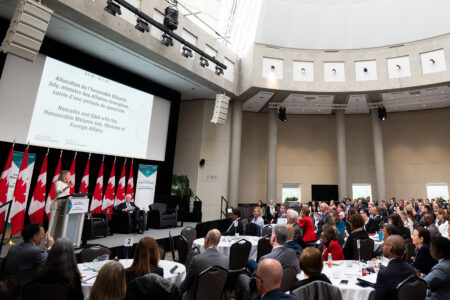
Let’s face it, the whole idea of democracy promotion rubs some people the wrong way. Who are we to tell other countries how to govern themselves? Isn’t that actually antidemocratic?
If there were doubts about the idea of democracy promotion after the fall of the Berlin Wall, those doubts gave way to outright cynicism after 9/11 (and its sequela Abu Ghraib, torture memos and Guantanamo). Cynicism gave way to despair with the failure of the Arab Spring, the Brexit fiasco, Donald Trump and his January 6 attempted “self-coup,” and the growing aggressiveness of Xi Jinping, Vladimir Putin and other autocrats. Who are we kidding when we talk about democracy promotion? And after Canada’s shocking vaccine nationalism, with what moral authority do we lecture anyone else about governance anyway?
And yet, talk we do, and talk we will. Prime Minister Justin Trudeau’s Liberal Party platform promised, admittedly somewhat vaguely, to focus foreign policy on democracy promotion and human rights (a theme that echoes the democratic foreign policy of the Liberal Party’s “Red Book” from the Jean Chrétien years). On December 9, US President Joe Biden will host the first of two “Democracy Summits.” After that, the Ninth Summit of the Americas, set to take place in early summer 2022, will likely make democracy a major theme. After all, it has been 20 years since the Inter-American Democratic Charter was adopted by the Organization of American States (OAS), and it seems high time to take stock of its efficacy (spoiler alert: the results have been modest).
But here’s the problem. How, you may ask, can Biden promote democracy globally when Republicans are rolling back democratic rights in one state after another, all the while propagating the lie that the 2020 election was stolen, and while Biden struggles to get a new voter-rights bill passed by Republicans and even members of his own party? How can the OAS foster democracy when some Latin American leaders (such as those of Mexico, Peru and Bolivia) insist that it is destabilizing democracy in Latin America, while other leaders point in horror at the humanitarian disaster in Venezuela and Daniel Ortega’s abuses of power in Nicaragua? These are tough times for democracy promotion.
It is time to reframe the whole debate. We need practical and hopeful proposals to prevent democracy’s further erosion. Instead of handwringing about the putative or real dangers to democracy – autocrats and populists, foreign meddling and domestic conspiracy theorists – perhaps we need to start by asking, What’s wrong with democracy and how can we make it better? How did the dangerous forces opposing democracy get the upper hand?
Those who fear that liberal democracy is being undermined by authoritarian populists and sundry other threats rarely acknowledge what ails our systems of government. Nor do they criticize the economic model of competitive globalized markets, which has brought inequality, systemic corruption and overweening corporate influence to extremes unseen since the gilded age.
A meaningful effort to strengthen democracy must start by asking how we can live up to the promise of a system of rule by, for and of the people. There are three key steps that we need to take. They are not easy, but they are necessary.
First, citizens’ power must be scaled up. In recent decades the world has witnessed an explosion of democratic innovations – from participatory budgeting to citizens’ assemblies, from deliberative polls to citizens’ juries – and many have been practised, even made, in Canada. And yet our governments – local, provincial and federal – have proven timid in fostering and facilitating the use of these innovations. The need for participatory innovations is made more acute by the lack of proportional representation in our electoral system, and we need a citizens’ assembly to find a better one.
Second, we need to be more cautious about relying on markets to make our public policy decisions. Asking what markets want rather than what serves the public interest brings the fossil fuel industry into the discussion of climate policy, gives tech platforms control over our news feeds, and places decisions about industrializing Crown – er, Indigenous – land in the hands of resource firms. We have wisely avoided allowing unlimited big money in politics, and this has immunized us against some of the pathologies of politics south of the border. Nevertheless, we are still in thrall to Davos man’s (and yes, he is typically a dude) notion that achieving global competitiveness must be the overriding aim of government policy.
Third, we can advance the cause of democracy in the world, not by imposing our model on other countries, but by democratizing international institutions and organizations. International organizations tend to be clubs of states that jealously guard their national sovereignty while doing little to include civil society or even legislators in their deliberations. Opening up these spaces to democratic deliberation is essential to building a fairer and more just international order. This new order must deal with the issues of global inequality, so that negotiations on issues like climate change or vaccine distribution are not log-jammed by distributive conflicts and plagued by prisoners’ dilemmas.
If democracy promotion means denying that our democracies are ailing and an attempt to foist our flawed institutions on others, then I submit it is not worth the effort. But could it mean something more like a genuine renaissance of a citizens’ democracy?
There is room for optimism, but not in the corridors of power or the boardrooms of the nation. It is found in the Indigenous land defenders and the forest protectors, in the union organizers and the student protesters. It is in the dedicated civil servants and professionals – teachers, nurses, doctors, firefighters, diplomats, planners, scientists and judges – who work every day, often against the grain of our colonial institutions, to provide the common goods a decent society demands. It is in the multiplicity of actions by organizations and individuals who daily dedicate themselves to the discovery and cultivation of those common goods. That’s where democracy lives or dies. And that’s where real democracy promotion happens.









